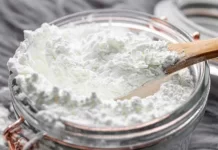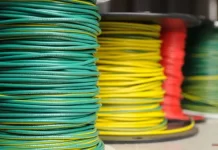If handled smartly, your credit card can be the most useful financial weapon at your disposal. If used recklessly, it would prove to be the source of multiple financial hassles and worries. And one of the most crucial factors to take care of while using a credit card is the better management of the debts incurred on it.
The tips listed below would certainly help you in mastering the art of tackling your credit card debts.
Refrain from overspending: Just because you have a high limit on your card doesn’t mean that you would use it for purchasing things that you do not really need. With a credit card, the urge to overspend in the form of impulse purchase is always strong.
- So if you don’t really need that expensive watch or have recently gifted yourself an expensive pair of shoes, don’t be quick to spend your money on the same stuff again.
- Constantly remind yourself that at the end of the day, no individual is going to repay all those credit card debts except you yourself.
Have a clear picture of your repaying capacity: This is utterly simple to understand. For example, If your monthly income is Rs.50,000 but the combined monthly expenses stand at Rs.60,000, you are invariably incurring debts.
- There are 2 options for you: Either raise your income to spend more or cut down on your credit card expenses if you are unable to boost your income.
- The smart move would be to chart out your monthly budget and stick to it, come hell or high water.
Use the balance transfer facility: If you are using more than one credit card, you can transfer the outstanding balance from all your cards to one card, preferably the one with the lowest interest rate.
- This way, you pay off the debts on all the cards except one and then you can work on an effective repayment plan for the unpaid card.
- Also check for the charge that you would have to pay to avail this facility. This, in fact, is a great way of streamlining your credit card debts if you use more than one card.
Prioritize your payments: If you have multiple credit cards, it’s obvious that first, you should pay off the debts incurred on the one with the highest interest rate. Once the debt on this card has been paid off, target the debt on the card with the second-highest interest rate.
Paying only the minimum amount due wouldn’t help: No two ways about it; if you feel that you’re safe by paying just the minimum amount due on every billing cycle, you are nothing but ignorant. That’s because the interest amount that would accumulate as a result of the remaining balance would be huge over time.
- If you bear this in mind that the rate of interest for an average credit card in India can be as high as 42%, it wouldn’t be very difficult for you to understand the consequences of paying only the minimum amount due.
- So even if you can’t pay the entire outstanding balance, pay an amount that’s as close to it as possible.
Use your reward points: If you have accumulated a good number of reward points on your card, check if you can use them to pay off your debts. Most major credit card issuers provide this option on all of their credit cards.
- Do a rough calculation of the amount that can be paid with the accumulated points.
- Finding out the monetary value of each reward point would give you an idea of whether the points can be used to make the full or part payment of the debts.
Seek help: Even after following all the tips mentioned above, if you are still struggling with your credit card finances, seek help from friends and family.
- Borrow some money from a friend or a dear one and use it to pay your credit card dues. Once the credit card dues are taken care of, you can repay the loan to the individual in due course of time.
- You can also approach your card issuer and seek a solution to this problem. In certain cases, you can also seek a debt settlement, which essentially means that the issuer would accept an amount that is less than what you actually owe.



































